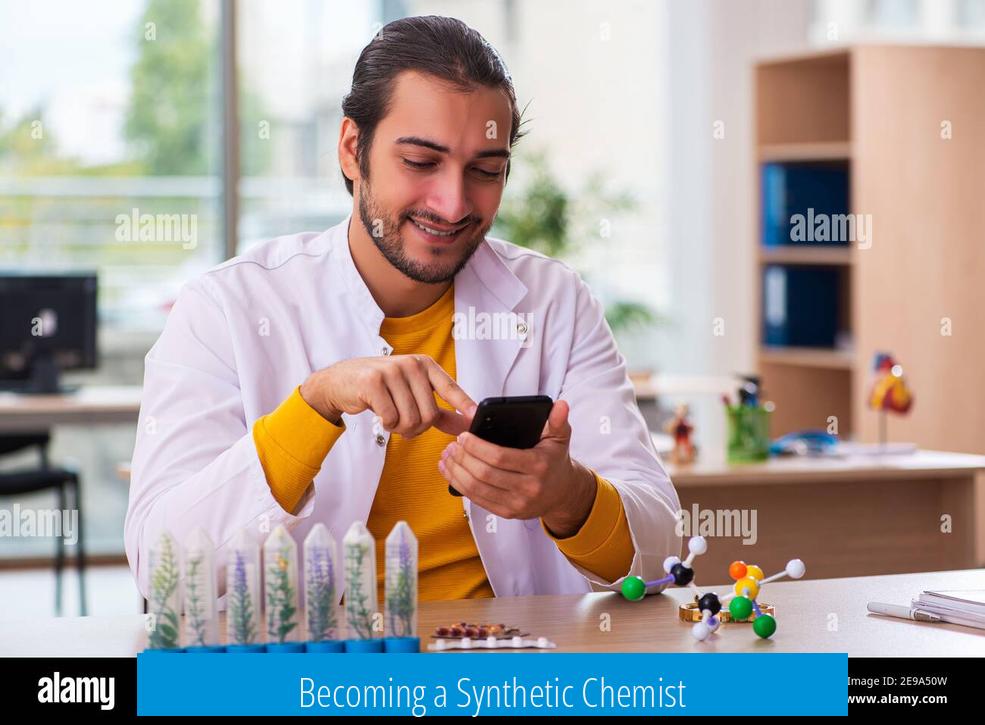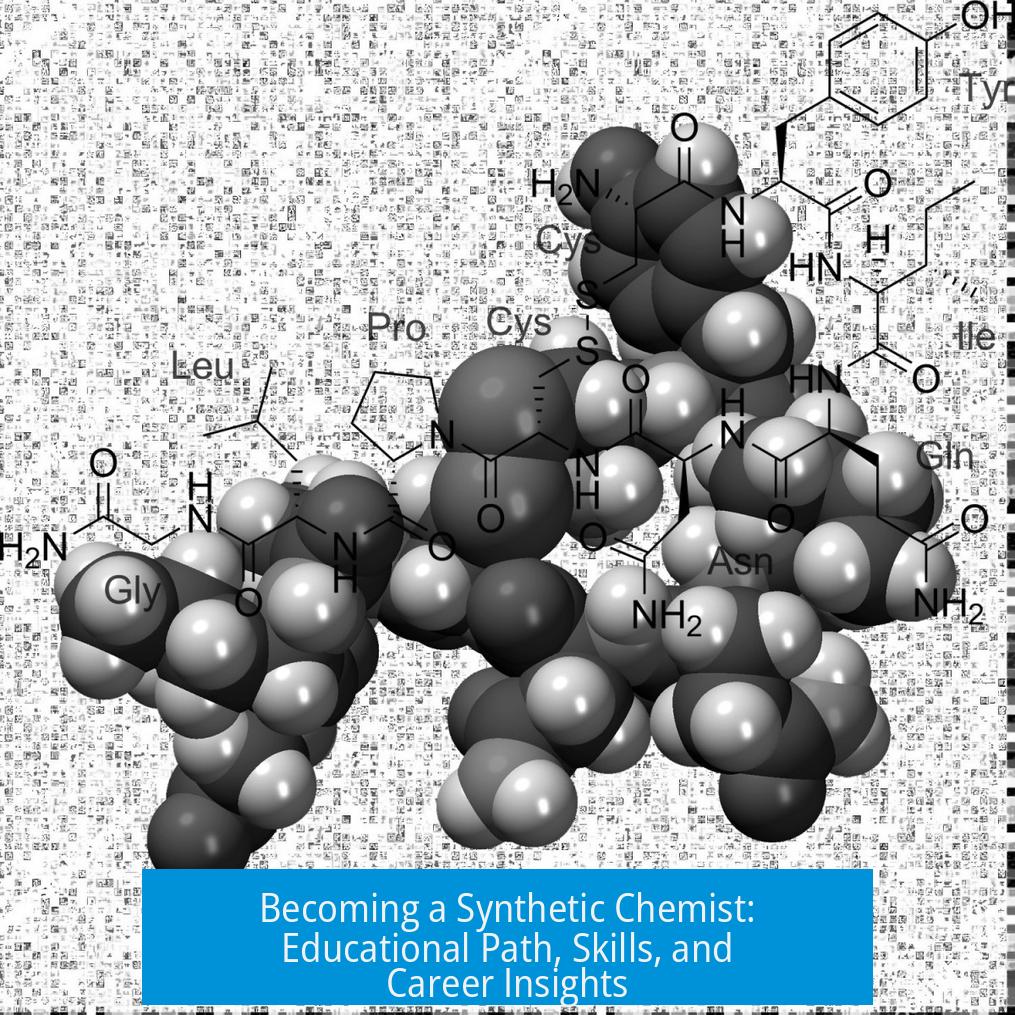Becoming a Synthetic Chemist

Becoming a synthetic chemist requires advanced education, focused skill development, hands-on laboratory experience, and understanding career progression within academic or industrial settings.
This article explains the essential steps, skills, and challenges involved in becoming a synthetic chemist. It integrates practical advice and realistic expectations from graduate studies to career advancement.
Educational Path and Academic Commitment
The foundational route to becoming a synthetic chemist generally involves pursuing a PhD. Graduate studies shape core expertise and practical skills essential for independent research.
- PhD Is Essential: A doctoral degree remains nearly mandatory for synthetic chemistry careers, especially in academia or research-intensive industry roles.
- Workload and Hours: Expect long hours in the lab, often 8 to 12 hours daily, 5 to 7 days a week during the PhD training. Holidays frequently involve lab work.
- Balance Teaching and Research: Graduate students often juggle teaching responsibilities. Time spent teaching reduces lab hours but requires catching up outside class time.
- Program Choice: Selecting a reputable university with an engaging, supportive professor enhances research quality and career opportunities.
This demanding schedule might seem intense, but it reflects the high commitment and excitement the field entails.
Important Skills and Learning Materials
Synthetic chemistry demands both theoretical understanding and practical skills. Learning and mastering mechanisms and synthesis strategies pave the way to success.
- Recommended Textbook: “The Art of Writing Reasonable Organic Reaction Mechanisms” by Grossman is a foundational, accessible textbook with practice problems. Mastery equips students with strong mechanistic insight.
- Literature Immersion: Synthetic chemists dedicate time to reading scientific papers. This builds knowledge, helps identify research gaps, and informs new project ideas.
- Selection of Journals: While reading literature can be daunting initially, starting with journals like Organic Letters offers shorter, accessible papers suited for newcomers.
- Strategic Tools: Understanding named reactions and their strategic application aids the design of efficient syntheses.
- Drug Design Chemistry: Studying organic chemistry related to drug design deepens understanding of active compounds and metabolic considerations critical to pharmaceutical synthesis.
Laboratory Experience
Hands-on work is central to synthetic chemistry. Skills develop progressively through practical training in a lab environment.
- Early Lab Work: New students often start with preparative tasks such as making buffers and reagents.
- Purification Techniques: After foundational tasks, handling purifications becomes a key part of skill building.
- Full Synthesis Responsibility: Eventually, students gain autonomy to design and execute synthesis following established standard operating procedures (SOPs).
- Joining a Lab: Proactively reaching out to professors engaged in synthetic chemistry is recommended to gain early lab experience.
Regular lab practice is critical to mastering the complex techniques and troubleshooting that synthetic chemistry demands.
Career and Industry Insights
Synthetic chemists find careers primarily in academia, pharmaceutical companies, or chemical industry. Understanding salary expectations and career progression is important.
- Salary Reality: Early career synthetic chemists may earn comparatively low wages. Significant salary improvements usually require advanced degrees and industry experience.
- Skill Progression Raises Value: Acquiring new skills gradually increases employability and compensation.
- Job Mobility: Changing companies often leads to larger salary increases than staying at one company for promotions.
- Crossover with Chemical Engineering: Individuals with strong math backgrounds may consider chemical engineering focused on synthesis. Such interdisciplinary skills are highly valuable but rare.
While academia demands intense schedules, the industry emphasizes efficiency and scalability of synthetic processes.
Personal Commentary and Motivation
The path to becoming a synthetic chemist requires balancing demanding work hours with enthusiasm for Chemistry.
- Passion and Dedication: Not all supervisors impose extreme working hours, but dedication is essential. Many enjoy the challenge and find it rewarding.
- Humor in Chemistry: Some view synthetic chemistry with humor, acknowledging its complexity and diversity within the field.
- Rewarding Career: Despite difficulties, synthesis offers both intellectual challenge and satisfaction in creating new molecules.
Summary of Key Takeaways
- Earn a PhD from a reputable school with a strong research advisor.
- Prepare for long lab hours and balancing teaching duties during graduate training.
- Master organic reaction mechanisms; recommended resource is Grossman’s book.
- Dive into scientific literature early, focusing on accessible journals such as Organic Letters.
- Build laboratory skills progressively from reagent preparation to full synthesis control.
- Expect modest starting salaries and plan for career mobility to increase earnings.
- Consider interdisciplinary skills with chemical engineering if math abilities are strong.
- Maintain motivation through passion for chemistry despite demanding workloads.
What educational path is needed to become a synthetic chemist?
You generally need a PhD to work as a synthetic chemist, especially in academia. Graduate studies involve long hours, often 8-12 hours daily in the lab, plus teaching and research duties. Choose a good program with a professor working on interesting projects.
How can I build strong foundational skills in synthetic chemistry?
Start with key textbooks like “The Art of Writing Reasonable Organic Reaction Mechanisms” by Grossman. Also, reading scientific papers regularly, especially from journals like Organic Letters, helps you understand current research and identify gaps to explore.
When should I start laboratory work and what does it involve?
Get lab experience as early as possible. Begin with basic tasks like preparing reagents and buffers. Over time, you move on to purifications and eventually conduct your own synthesis procedures under supervision.
Is industry or academia better for a synthetic chemist?
Academia often demands longer hours and slower salary growth. Industry might pay better after several years, especially if you switch companies. Skills increase your value, and combining chemical engineering with synthesis can make you especially valuable.
What personal qualities help in becoming a successful synthetic chemist?
Persistence and passion for lab work are key. The workload can be intense, but genuine interest in synthesis helps you manage long hours. Not every supervisor expects extreme hours, so your attitude toward hard work matters a lot.





Leave a Comment